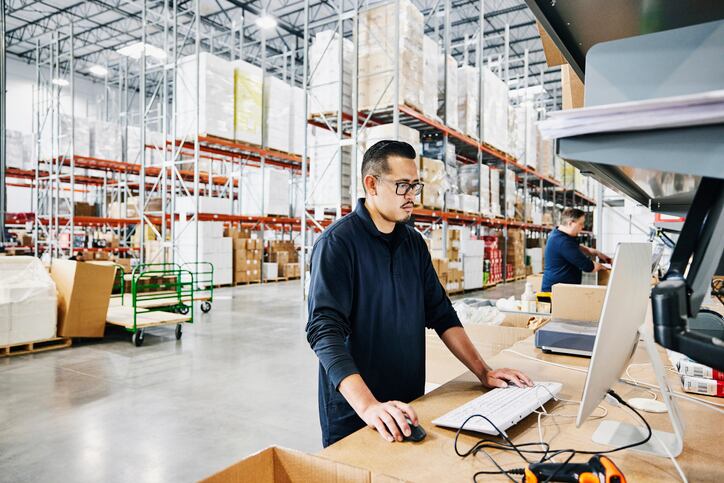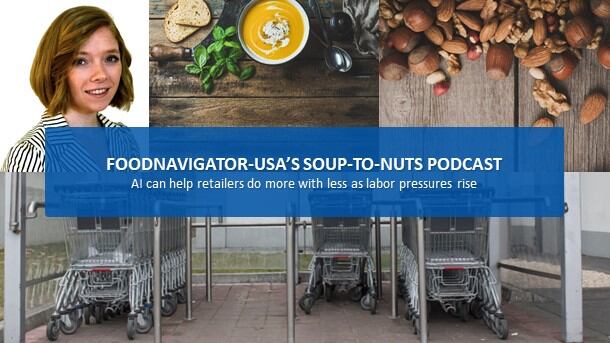In September, the CPG industry added 5,000 jobs, on top of 6,000 in August, and 7,000 in July, according to the Bureau of Labor Statistics, which will release October’s results Nov. 5. On the surface, this may look like progress, and it is, but it isn’t enough when viewed alongside the 143,000 unfilled jobs in the CPG in August and the 889,000 open positions in the broader manufacturing industry, according to BLS data.
“As the COVID-19 pandemic has worn on and supply chain pressures have intensified, we have run out of slack in the system,” Consumer Brands Association president and CEO Geoff Freeman said in a statement about the most recent figures.
“The imbalance of jobs added versus jobs open is driving up costs and threatening product availability. As we head into the busy holiday season, we need to find ways to grow the workforce to keep shelves stocked with essential goods,” Freeman added.
Finding opportunity in ‘The Great Resignation’
One way that growing CPG brands in the food and beverage space are attracting and retaining talent to meet heightened demand is by recognizing that the pandemic has fundamentally redefined basic expectations of professional needs, Jordan Gaspar, managing partner at AF Ventures, noted last week during a roundtable discussion with leaders of emerging CPG food and beverage brands.
“The pandemic brought tremendous dislocation, and with it, lasting relocation, as people took the opportunity to resettle – whether it be families moving out of major cities in search of more space, an aging population shaping retirement plans or young people taking advantage of the market to lock in new homes,” Gaspar said about the so-called “Great Resignation” that spurred a record 4.3 million to quit their jobs in August.
She explained that the “Great Resignation” is a “misnomer as the majority of those who quit one job have simultaneously shifted to a new much more exciting job, thus also prompting ‘The Great Hire.’”
But a key caveat for which companies are hiring and which are losing employees is whether they take into account the new emphasis that Gaspar says is now placed “on not just what you do and how much money you make doing it, but also how you work,” whether that be remotely, in an office, in a community with a certain lifestyle, at a company with a compatible culture or at a job with high travel expectations.
Offer flexibility
Recognizing that different employees want and thrive best in different work environments, plant-based food brand Alpha Foods adopted a hybrid model during the pandemic that provides a flexible work environment in which people can reserve a “hot desk” when and where they need it, or they can work from home using standup desks and other at-home office tools and technology provided by the company.
The company co-founder and CEO Cole Orobetz acknowledged that “nothing can really replace that in-person connectivity, the communication and what you can build from a cultural perspective of having people in a physical office,” but he added this hybrid model has worked well for the company as it has grown 300% since March 2020.
Dean Kelly, CEO of the personalized sports nutrition brand Gainful agreed, noting that when his company talks to potential new hires it doesn’t offer remote work as carrot, but rather “we really rally around the idea of flexibility,” because not everyone can or wants to work from home.
“In November of last year, while most people were closing their offices, I made a decision to open an office…. I felt it was really important to have a center that team members could feel as if they could come to work if they wanted to, if they wanted a break from working at home. Not everyone’s got the ability to work from home,” he explained.
‘People are looking for more meaningful work’
Whether employees will work remotely, in an office or a hybrid environment, clearly communicating expectations, the company’s mission and culture during the recruitment and interview phase is essential not only to finding a good fit, but a lasting one as well.
“As we look at the Great Hire and the Great Resignation, people are looking for more meaningful work that they can personally relate to at some level, or they feel just great getting out of bed for,” Orobetz said. “As a mission-based company, we’re super proud that we’ve always attracted people that really believe in the purpose and mission of making a big positive impact on the world’s food system, making more it more sustainable, addressing animal welfare as well as human health. … Those three pillars … are like a magnet to attract top talent to our company.”
In addition to the mission, a company’s culture can be a big draw for employees, said Garrett Waggoner, co-founder and CEO of Cirkul, a flavor cartridge delivery system that allows users to flavor their water.
“It’s super important to really be forthright with folks when you’re talking about the culture of the company is. When we go through the hiring process, I tell people my aspiration for Cirkul is not to be an easy place to work. …. I want to be an easy place to want to work really hard,” Waggoner said.
As such, he added, “in the first 30 to 60 days for any team member, it’s important for that culture buy-in to happen very early on because that’s how you get organizational groupthink where everyone approaches problems with a similar framework.”
Waggoner also noted talent is drawn to top products and companies, which is one reason why he says he strives for Cirkul to resonate with and excite consumers.
“We have such fantastic consumer reception. A lot of folks who are looking for work during the Great Hire, in their conversations with family, it’s like, ‘Hey, I’m talking to this beverage company that makes a really neat water bottle delivery system.’ ‘Oh, is that Cirkul? I saw them on TikTok.’ And it feeds into itself,” Waggoner explained.
Balancing promotions and recruitment
As companies simultaneously navigate the Great Resignation and the Great Hire, they must balance promoting from within and outside recruitment of top talent – otherwise they risk losing the staff they have or not finding the best fit for their jobs.
At Alpha Foods, Orobetz said, the company historically has “operated from the adage of hire for attitude and train for skills,” which has allowed most junior and mid-level employees to move up in the company.
But, he added, there comes a time in every emerging brand and founder’s journey when they need best-in-class talent for certain functional areas of the business – people who are industry veterans with really deep expertise – and those people must be hired externally.
When hiring someone from outside the company, Kelly recommends that business leaders clearly communicate to internal staff why someone from the outside is necessary, what they are looking for a position the departure from the “promote from within” culture as a learning opportunity for everyone.
While Kelly agreed with Orobetz that sometimes hiring external experts is important, he added that businesses that want to retain employees and cultivate a sense of loyalty should try – when possible – to hire ambitious people and provide them a clear path and stepping stones up so that they have fulfilling careers and build institutional knowledge.




